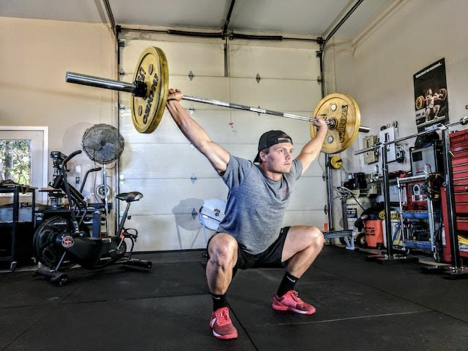In the bustling life of a student-athlete, nutrition can often take a back seat. Between juggling academics, practices, games, and occasionally a social life, ensuring optimal nutrition can feel like another sport. However, the right nutrition strategy can significantly boost performance, recovery, and overall health. Below, we delve into five transformative nutrition hacks tailored to the dynamic needs of student-athletes.
Are There Many Student Athletes Now?
We live in a fascinating time where student-athletes are becoming increasingly prominent in the academic world. Colleges and universities are experiencing a surge of students balancing academic studies and athletic pursuits. As a result, many of these students are seeking academic assistance at grabmyessay.com with requests to write essay for me, to manage their demanding schedules. This trend highlights the dedication and determination student-athletes have toward excelling in both areas.
Understanding the Athlete’s Plate
Before diving into specific hacks, it’s crucial to grasp the basic concept of the Athlete’s Plate. This model, often endorsed by sports nutritionists, visually illustrates how a plate should be partitioned based on training demands.
- Easy/Rest Day: 1/2 plate vegetables, 1/4 plate lean proteins, 1/4 plate whole grains.
- Moderate Training Day: 1/3 plate vegetables, 1/3 plate lean proteins, 1/3 plate whole grains.
- Hard Training Day: 1/4 plate vegetables, 1/4 plate lean proteins, 1/2 plate whole grains.
This flexible approach allows student-athletes to adjust their intake based on activity levels, ensuring they’re not over or under-fueling.
The Importance of Hydration
Water is the unsung hero in any athlete’s diet. Every cell, tissue, and organ requires water to function optimally. For athletes, hydration impacts everything from muscle function to temperature regulation.
A good rule of thumb is to drink at least half your body weight in ounces daily. For example, if you weigh 160 pounds, aim for 80 ounces of water. Additionally, consider adding an extra 16-20 ounces for every hour of intense training. And don’t forget about electrolytes; sports drinks can be beneficial post-workout, especially after intense or prolonged sessions.
Top 5 Nutrition Hacks
Nutrition can be a complex topic to navigate, especially for student-athletes with specific performance and recovery goals. Let’s break down five essential nutrition hacks that can help student-athletes make informed decisions to nourish their bodies effectively. By understanding and incorporating these principles, student-athletes can optimize their nutrition and achieve their goals.
-
Optimize Breakfast
-
- Why It’s Important: Breakfast effectively “breaks the fast” after a night’s sleep. It kickstarts metabolism, stabilizes blood sugar levels, and provides the energy needed for morning workouts and classes.
- How to Do It: Aim for a harmonious mix of proteins, carbs, and healthy fats. Eggs, for instance, are protein powerhouses, while oatmeal provides sustained energy from complex carbohydrates. Avocado adds a creamy texture and healthy fats that promote satiety and brain health.
-
Timing is Everything
-
- Why It’s Important: Post-exercise, there’s a window where the body is primed to absorb nutrients, helping to repair muscle tissue and restore glycogen stores.
- How to Do It: Within 30 minutes of exercising, consume a snack or meal with a balance of protein and carbohydrates. This combination is scientifically proven to expedite recovery. An example could be a smoothie made with Greek yogurt, bananas, and a sprinkle of chia seeds.
-
- Why It’s Important: While supplements can fill nutritional gaps, relying on them entirely misses out on the synergy of nutrients found in whole foods.
- How to Do It: Incorporate diverse whole foods into your diet. Chicken and fish are excellent lean protein sources. Quinoa, being a complete protein, is a fantastic grain choice. And, of course, colorful veggies not only offer essential vitamins and minerals but also antioxidants that combat exercise-induced oxidative stress.
-
Listen to Your Body
-
- Why It’s Important: There isn’t a one-size-fits-all in nutrition. Bodies respond differently to various macronutrient ratios, meal timings, and food types.
- How to Do It: Journal your meals, noting down how you feel afterward. Over time, patterns will emerge, indicating which foods boost your energy and which ones leave you sluggish. By paying attention to these cues, you can tailor a diet that’s unique to your needs and preferences.
-
Stay Away from Empty Calories
-
- Why It’s Important: Foods and drinks packed with sugars and devoid of nutritional value might give an immediate energy jolt but often result in energy slumps later on.
- How to Do It: Prioritize snacks that are rich in nutrients. Nuts, for example, offer healthy fats, protein, and fiber, keeping you full and energized. Fresh fruits provide natural sugars paired with fiber and vital vitamins. Yogurt can be a probiotic-rich choice that also adds a protein punch to your snacks.
Final Thoughts
Proper nutrition for student-athletes isn’t about adhering to a rigid diet but rather understanding and responding to the body’s needs. Through strategic choices, it’s possible to enhance performance, speed up recovery, and, most importantly, foster a healthy relationship with food. Remember, just like in sports, consistency is key. So, start small, be patient, and relish the journey of fueling your body right!
Bio
Alice Barrios is a certified sports nutritionist who has dedicated her career to optimizing the dietary practices of athletes. With a focus on holistic well-being, Alice has published numerous articles on the synergy between performance and nutrition, drawing from evidence-based research and real-world experience. In her downtime, she immerses herself in the latest nutritional studies, ensuring his insights remain at the forefront of the field.


















Follow Us